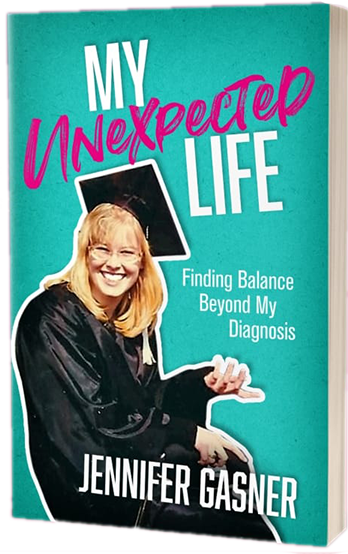It’s been two years of caution, two years of celebrating my birthday on Zoom, and two years of not going to trivia night at my local brewery. I want to go out, but I can’t because mask mandates are gone. Not having to wear a mask may be a small thing to many, but it’s huge to the sixty-one million Americans living with a disability and me.
I was seventeen in 1990 when I was diagnosed with Friedreich’s ataxia (FA), a progressive neuromuscular disease. At the time, I was unaware of us the history of disability. The Americans with Disabilities Act (ADA) had just passed, and I thought society was progressing.
After 25 years as a wheelchair user, I have learned much about the dark history of the eugenics movement. We have moved beyond those ideas, right?
Enter Covid-19.
As hospital case numbers continued to climb, decisions had to be made about what resources were given to help the sick. In Texas, Arizona, and the UK, reports describing healthcare professionals being told not to treat or put DNR (do not resuscitate) orders on people with disabilities came to the surface. Many instructions were based on the disabled’s perceived “low quality of life.”
Even after being vaccinated and boosted, I rarely do more than take my dogs for a walk or go to essential doctor’s visits—always wearing a mask. I don’t want to be in the hospital with Covid and be judged as inferior.
The notions of the lower standard of disabled people’s lives are something even I had for ten years after my diagnosis. I thought my life would be horrible—sad and lonely–my friends would vanish, and I’d be unattractive. I’d be a burden to everyone. Needing help would be demoralizing. I needed to be fixed—to be “normal” if I wanted to fit in. I didn’t want to live “that” way.
Nearly ten years after my diagnosis, I learned more about disability culture and history. I discovered those same less-than feelings and ideas were from the medical model of disability. The model is the one most people see and how doctors and educators generally view disabled people as suffering and unfulfilled. They need the cure to live well. Death is better than living “that” way.
I also started to understand the social model of disability. It looks at how society interacts with disabled people as they are, not trying to make us fit into the ideal human. For example, when entering a building, it shouldn’t just have steps; a ramp will allow everyone to reach the entrance.
Recently, the CDC Director, Dr. Rochelle Walensky, said the loss of people who are “unwell” to begin with is “encouraging.” Does that mean my death will be meaningless?
All this makes me feel inconsequential as if we are regressing to the era of eugenics, institutionalization, and physical barriers, like steps or narrow doorways. All done to keep people with disabilities out of sight, away from participating in the world. It’s as if all the progress disabled people have made because of the ADA and the emergence of disability studies have done nothing to alter our intrinsic value.
The end of mask mandates is another indication the vulnerable don’t matter. Masks are an essential protection against the spread of Covid. For many, like the immunocompromised or those who can’t get the vaccine, it’s their sole shield against the virus. Interacting with naked faces is scary. So many people aren’t vaccinated; at least the required mask provided some safeguard.
Are people with disabilities being told to stay home, once again concealed from society?
I want those who continue to view disability in the medical model to know I was wrong. My life isn’t “that” way. I’m not depressed and an outcast: I have friends, a boyfriend (and, yes, we have sex), and my dogs. It’s fulfilling too—intellectually and emotionally. That doesn’t mean it’s not frustrating. I didn’t reach this point overnight; whose life is simple?
I don’t need the cure to live a better life. I’m happy and fulfilled the way things are. But I must admit that I wish there were something I could’ve done to hinder progression or even make one thing easier as I age. For example, maybe my hand coordination could be better, I’d have better core strength, or I could’ve driven a mini cooper for $25,000 and not needed a drop-floor mini-van for $80,000 to accommodate my power wheelchair. But erasing the disabled part of my identity that I have held for the last thirty-one years of my life seems flippant and lacks respect for the value I possess.
I wish people would see that sixty-one million Americans are not disposable because we are disabled.


Sharp commentary! I nodded along to every word.
You go girl! Right on. Your writing is information and to the point, without any preaching or pity party. Well done!
Preach!